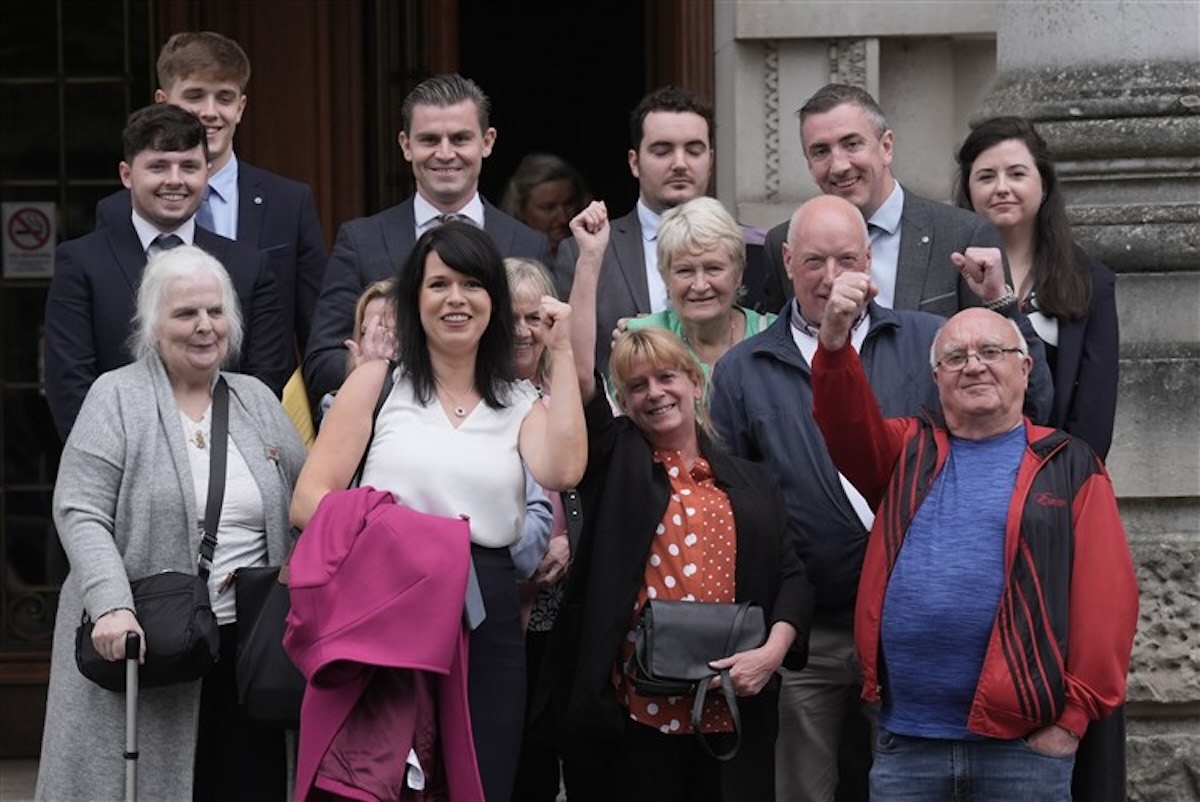
A Court of Appeal has effectively shut down Britain’s ‘truth’ body after it ruled that parts of Independent Commission for Reconciliation and Information Recovery (ICRIR) are not compatible with human rights law.
The body was established under the previous London government as part of a bid to shut down investigations into British war crimes in the north of Ireland.
It has been rejected by the overwhelming majority of families who were left bereaved by the conflict, as well as the advocacy groups and justice campaigns who have supported them.
While the British government has pledged to repeal and replace the underpinning ‘legacy’ legislation, it has remained ambivalent about scrapping the ICRIR itself.
However, the Court of Appeal judgement on the legacy act was issued on Friday and comes as a potentially final, fatal blow to the ICRIR.
Several victims and relatives had launched legal action challenging the act and the High Court later found the commission did not contravene human rights laws.
The Court of Appeal, which delivered its judgment on Friday, found the commission is incompatible with the European Convention on Human Rights (ECHR) in respect of the power held by the British government to withhold sensitive information from families.
Relatives of those killed have welcomed the court judgment.
Martina Dillon’s husband Seamus was shot dead by a loyalist death squad near Dungannon in County Tyrone in December 1997. Earlier this year an inquest into his death was halted due to the act. Mrs Dillon described the outcome as a victory.
“Today was a brilliant day for victims,” she said. “We’ve won. We’ve won what we wanted.”
Mrs Dillon, who has campaigned tirelessly on behalf of her murdered husband, called for the chief commissioner of the ICRIR, Declan Morgan, to resign.
“We’re asking him to now step down and for the government to give us back our inquest and give them as soon as possible,” she said.
“Let the victims speak. Let us be heard. Let the truth finally come out.”
The campaigning widow also called on the British government to restart her husband’s inquest.
“Let the victims speak, let us be heard, let the truth finally come out,” she demanded.
Her lawyer Gavin Booth, of Phoenix Law, called for the ICRIR to be scrapped.
“It’s time for the ICRIR to go and it’s time for the Secretary of State to go back to the drawing board.
“He should immediately renew his election manifesto pledge where he said he would repeal and replace - and so now it’s time to repeal the act in full and give victims what they want and that is their inquests, inquiries and investigations.”
He added: “There’s only so much you can put lipstick on a pig, it’s time for that body to go. It’s been defunct from the start,.
“You know, there’s a lot of window dressing going on in terms of this body, but the reality is this body does not work, and it’s not capable of carrying out what our victims need in order to establish truth. There has been nothing wrong with the courts that we’ve had to date, and we want those days back.”
Before the hearing several human rights groups held a protest, including Relatives for Justice, the Pat Finucane Centre and Justice for the Forgotten.
Outside the courts, family members laid out shoes and other belongings of loved ones ahead of the court hearing, labelled an “In Their Footsteps” memorial.
North Belfast MP John Finucane, whose family last week were told there would be a public inquiry into the murder of his father in their home in 1989, said that there was no confidence in current methods of dealing with legacy cases.
“It’s very moving and it’s very poignant and dignified that families come here today, it shows how important it is for them,” Mr Finucane said.
“That’s what we’re really here about, a stark reminder that we are here for so many people that did lose their lives, and we are here to ensure that they get a proper crack at justice.
“It’s very clear that there is no confidence whatsoever in the proposals and mechanisms that have been imposed on families by a Tory government who didn’t listen to anybody on this island or beyond.
“The families have been at this for decades, for generations, it’s cruel, unnecessary and I think it’s very important that we all stand in solidarity in one voice to say that we want to deal with our past.”
Grainne Teggart from Amnesty International added: “This is a great day for victims. The judges have spoken loud and clear today – the core parts of the ICRIR are unlawful. We call on the Secretary of State to follow through with their commitment to repeal the Troubles Act in full without qualification, and to give back victims the legacy processes that were in place prior.
“We also need, as a matter of urgency, new legislation to replace the Troubles Act that will finally vindicate their rights.”
![[Irish Republican News]](https://republican-news.org/graphics/title_gifs/rn.gif)
![[Irish Republican News]](https://republican-news.org/graphics/title_gifs/harp.gif)

